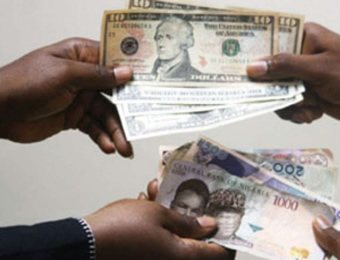THE recent circular released by the Central Bank of Nigeria directing that foreign exchange (forex) be made available to pilgrims at the rate of N197 per dollar has received widespread condemnation. Not a few Nigerians felt it was unreasonable for the Federal Government to subsidize pilgrimage when manufacturers, students and businesses are getting the dollar at the rates of N310 and N400 in the official and parallel markets respectively. Based on this misstep, many have raised the question whether the present administration really appreciates the enormity of the challenges facing the economy and whether it has the capacity to set its priorities right.
Not surprisingly, the government’s defence of its action has raised more questions than answers. The Special Assistant to the President on Media and Publicity, Garba Shehu, had said the N197 per dollar exchange rate was approved by the president around May and that Christian Pilgrims benefited from a similar gesture in December 2015. Garba missed the point because Nigerians’ grouse is about the propriety of official subsidy for religious pilgrimage which is supposed to be strictly a private affair. The point to be underscored is that concessionary forex rates for Christians and Muslims is wrong and smacks of national fraud. That was why it was greeted with a deluge of criticisms when a similar inappropriate gesture was extended to Christian pilgrims towards the end of 2015.
Government policies like the hajj dollar subsidy which are largely influenced by sentiments and primordial attachments are often suboptimal in terms of their outcomes. And in any case, the dire straits in which the country’s economy is does not recommend subsidy on religious affairs. The major plank upon which the government’s defence of the hajj dollar subsidy rests is weak and cannot withstand scrutiny. The official impression being created is that approval for the concessionary rate had been given before the official adoption of the floating rates scheme for forex. The implication of this is that the pilgrims are simply benefitting from what would appear to be a valid forward contract which turned in their favour.
However, this is not really the case. And assuming but not conceding that a forward contract exists: who were the counter parties to the contract? Could they be CBN and individual pilgrims or CBN and all the pilgrims as a group? Is it appropriate for the CBN, the regulator of the market and the agency fixing the forex rates, to enter into forward contract with the pilgrims? And if the contract was sealed with the bankers of the pilgrims which should have been the ordinary course of events, why then did it become imperative for the CBN to issue a circular to the banks to sell Personal Travel Allowance of between N$750 and $1000 to pilgrims at a concessionary rate of N197 per dollar? What is concessionary about this rate, which could also have gone the other way, say N157 per dollar, if indeed it was an outcome of a forward contract? The officials claiming the dollars were warehoused when the approval for the rate was obtained should state where the forex was kept, when, where and to which account(s) the naira equivalent was credited.
At a time when the shortage of dollar at both the interbank and parallel markets is weighing adversely on the value of the naira, this hajj dollar subsidy is wrong-headed and will compound forex liquidity issues, with dire consequences on the value of the naira. This is in addition to sending a wrong message to investors who have been unable to source sufficient foreign exchange for productive purposes. Again, it is imperative to note that the significant rate differentials between the interbank and parallel markets on the one hand and the subsidy rate on the other hand are attractive and tempting enough to generate all manner of abuses, including round-tripping.
It would appear that, as in many other cases, the government is finding it difficult to deliver on its promise to make a clean break from the sponsorship of religious pilgrims. Scarce foreign exchange should, we believe, be channeled to critical imports needed to support growth and contribute to helping the economy to exit recession. Save for documentation of intending pilgrims and services that ensure their welfare and safety in the holy lands, government should hands off all matters pertaining to religious pilgrimage. Religion should remain what it is, a personal relationship between the faithful and their God.
WATCH TOP VIDEOS FROM NIGERIAN TRIBUNE TV
- Relationship Hangout: Public vs Private Proposals – Which Truly Wins in Love?
- “No” Is a Complete Sentence: Why You Should Stop Feeling Guilty
- Relationship Hangout: Friendship Talk 2025 – How to Be a Good Friend & Big Questions on Friendship
- Police Overpower Armed Robbers in Ibadan After Fierce Struggle






